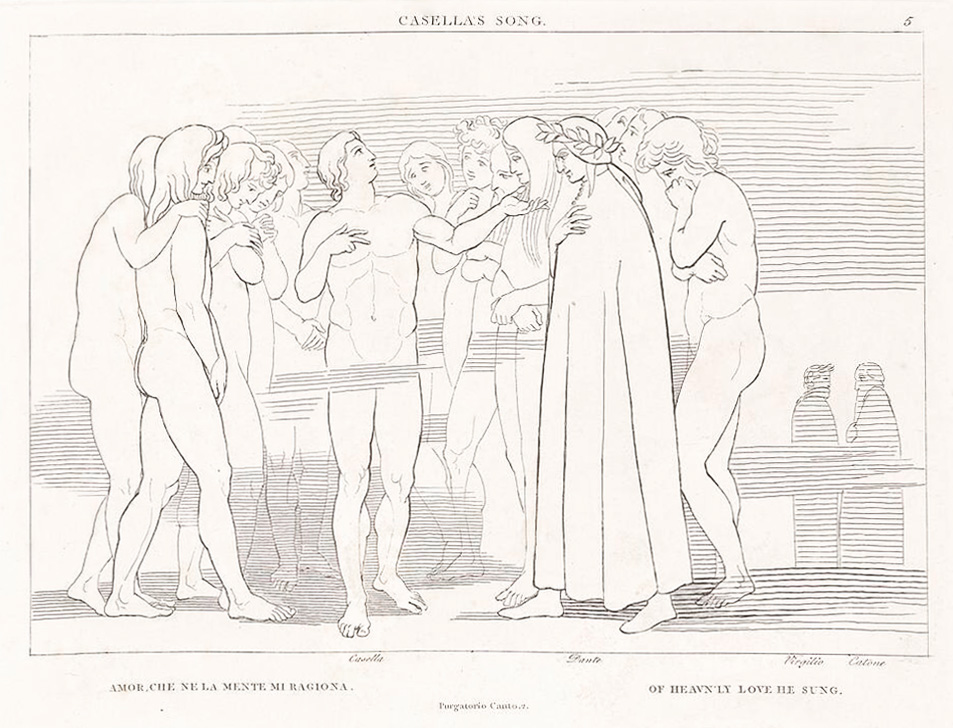Casella

Though little is known about the historical musician, Casella, he is understood to have been a friend of Dante’s. In the Divine Comedy, Casella is one of the new arrivals in Purgatory, conveyed on a boat helmed by an angel. While on board, the penitents sing the entirety of the psalm In exitu Israel de Aegypto in unison. After they disembark, the two men move to embrace, but Dante is distressed to find his hands empty: Casella is incorporeal – a shade. Dante asks his friend to sing him a love song "if no new law prohibit thee" (Purgatorio: II, 106). Casella sings a setting of one of Dante’s own canzoni, a love poem, and all gather around "Entranced, as bearing nothing else in mind" (115). Cato, the warden of Purgatory, angrily tells them to move on. Some scholars suggest that the inclusion and placement of this secular song has been misinterpreted. The charm of the encounter with Casella diverts the penitents’ attention – as well as the reader’s – from the psalm they have just sung, despite its relevance to their current situation.
Flaxman, in a number of illustrations of the Divine Comedy, finds ways to visually reference music making, both vocal and instrumental music. Here he uses horizonal lines to designate the incorporeal and, through Casella’s stance – with his weight on one leg – and the rhetorical position of his hands, suggests a performance that was utterly compelling.